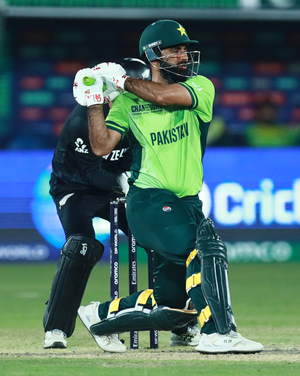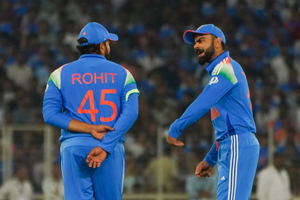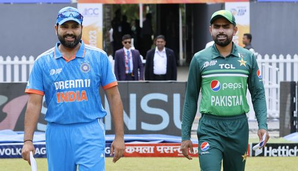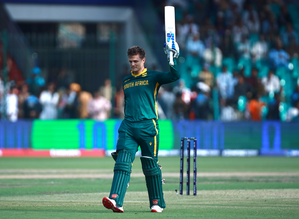Hafeez slams Pakistan’s decision to risk injured Fakhar in opener against NZ

New Delhi, Feb 20 (IANS) Former Pakistan captain Mohammad Hafeez has strongly criticised the team management for risking Fakhar Zaman in the ICC Champions Trophy opener against New Zealand, a move that now cost the star opener the entire tournament.
Fakhar sustained a knee injury during the first over into Pakistan’s opener against New Zealand while chasing the ball in the outfield, forcing him to leave the field. Though he returned during Pakistan’s chase, The ICC regulations prevented him from opening the batting for Pakistan. Instead, he was sent in at No. 4, a decision Hafeez believes was a major miscalculation.
“You give the Champions Trophy to the guy who sent Fakhar to bat at No. 4. He couldn’t run properly. It was a long match, and he was in pain. You can’t expect him to just stand there and hit every ball out of the park. He was struggling with running between the wickets, which added more pressure on Babar Azam,” Hafeez said on PTV Sports.
Beyond Fakhar’s injury, Hafeez also raised concerns over Babar’s approach during Pakistan’s 60-run defeat. The Pakistan captain scored 64 off 90 balls but failed to accelerate when required.
“Babar is a top player. He has nearly 18,000 to 20,000 international runs, but what was his intent today?” Hafeez questioned. “He scored a fifty and seemed satisfied, but Pakistan lost the game. If his knock had taken the game forward, then it would have been valuable. Instead, his half-century cost Pakistan the match. Why didn’t we start batting with that intent in the powerplay?” he added.
Pakistan’s title defence at home had already been dealt when Saim Ayub was ruled out of the tournament after he twisted his ankle during the Test series in South Africa.
–IANS
hs/




